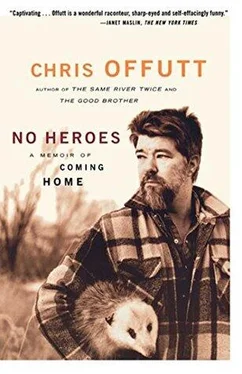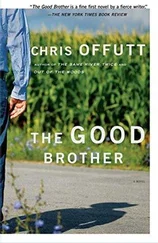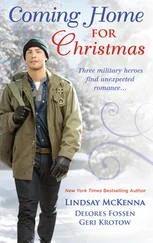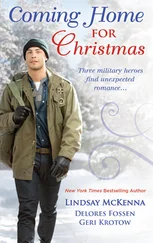My friend the woman, she orders me around all over the place. She’s in the bathtub. She orders me, wash my back. Wash my feet. I prepare coffee for her in the morning. I did everything for her. She constantly tells me to come in the morning, and if I don’t come in the morning, I’ll be a dead Jew in the afternoon.
I don’t want to make her angry because she gets drunk and is totally irresponsible. I tried to appease her. I’ve never been as nice to anybody as I was to that girl. My boss knows that I go there. I have a feeling that he knows something is all wrong, because every time she calls the office, he calls me on a loudspeaker. Go up to my house and fix something. I think one day he gonna come in. Because if she tells me to wash her back, I’m gonna wash her back and he gonna come in and shoot me right there.
He abused her a lot. He used to get drunk and beat her up. She had cigarette burns on her body. I would find her in bad condition, bloody and semi-conscious. I put her in the bathtub, put some warm water in it, and she just sat there crying a lot. She would get herself together again and do what he told her to do.
I felt very bad because I blamed myself that she wound up in this position. She wasn’t too old, maybe a couple years older than me. And she always said that she was gonna kill him. She said before the war is ended and her parents gonna find out about her living with the German, she gonna burn that place down. After the war, I met a friend of mine and he said this place was burned down.
She suffered a lot and I have a bad feeling that if I would be dead, maybe she would not wind up like that.
We had a poetry group behind the latrine. We got together from the same barracks with Elona Carmel. She started the whole group. I don’t know her married name. We gathered together behind the toilets, where we were safe. Each one prepared something. We had pieces of paper from me because I worked in the paper factory. Elona wrote a poem and we listened, and then each one, whatever they could deliver, a poem, some thoughts, some hopes, some descriptions. When I think back, this is like a little sunshine opening.
It was not allowed to do that. That was taking a chance, but we did. These little gatherings made a big difference and I was not taken. I was not destroyed. Maybe outside, but not mentally. Poetry saved me.
Appalachia suffers from “brain-drain,” in which the bright and ambitious people depart and seldom return. Those left behind tend to perpetuate the social problems that forced folks out in the first place. People who leave crave the opportunity to assimilate by erasing their accent, speaking vaguely about hometowns, and embrace the trappings of a new life. Many tend to hide who they are and where they are from. I had been through this myself.
For the first time in two decades, I could stand in a room full of people as a member of the majority. My favorite class was Intro to Creative Writing because of the sense of freedom young people brought to their work. The top two students, Eugene and Sandra, were in the class. Eugene arrived early to return the books I’d lent him — Flannery O’Connor and Breece D’J Pancake — writers from rural worlds.
“I never read nothing like those,” Eugene said. “In high school, we read Romeo and Juliet, the biggest bunch of bullshit you ever did see.”
“I know what you mean,” I said. “Two teenagers in love and their folks mad at them. Families feuding with each other. People saying one thing and meaning another. Getting killed for no reason. Nothing like where I grew up. What about you?”
“Well,” he said as a grin slid along his smooth jaw. “I know what you’re doing. But we never had swordfights up my hollow. And we don’t talk funny, either.”
“Let me tell you something, Eugene. You might not think you talk funny, but the minute you step foot out of these hills, everyone else will think so. Next time you read Shakespeare, just substitute guns for swords. The best thing, though, is to read what you want to.”
“Got one for me?”
“Still want short stories?”
“Yup.”
I gave him books by Mary Hood and Larry Brown.
“Georgia and Mississippi,” I said. “Talk about talking funny.”
He slipped the books in his bag. Students flowed around me, the twang of their accent bouncing off the concrete walls. The days assignment involved reading a poem that used the word waning. Sandra said she didn’t know the word.
“You’re an English major,” I said. “This is a writing class. When you don’t know a word, you should look it up.”
“I can’t look up every word I don’t know,” she said.
“Sure you can, Sandra. In fact, you’re supposed to. That’s how you learn new words. I know one guy who makes a mark by a word he looks up so he can know if he’s searched for it before.”
“Well, I went to school in the hills,” she said. “There’s a lot of words I don’t know.”
“I understand.”
“Since you’re from the hills, you should give me a break.”
“No way,” I said. “That’s even more reason not to give you or anyone else a break. You can’t think that way. That’s buying into the whole victim status we’ve been given. The federal government thinks that way and they throw money at the problem. This college tells new faculty that the students are a ‘special population.’ Do you know what that means? It means they don’t expect anything from you. Once you think you deserve special treatment simply because of who you are, you’re in a lot of trouble. You are then participating in your own subjugation. As long as we act like dumb hillbillies, people will always see us that way. The stereotype comes from within the culture, not from outside! We must defy the expectations, not feed them! We cannot voluntarily participate in our own social oppression!
Out of breath, I stopped and looked at the faces of the students. Some were visibly upset. Others showed the familiar glazed expression of having turned inward for protection. I realized that my yelling was in itself a form of oppression.
“Class dismissed,” I said. “Go look up the word subjugation. I’m sorry I yelled.”
The class left silently, no one remaining behind. I walked out of the building, thinking that I was the same as a father being cruel to show cruelty was wrong, or a boss belittling workers to increase morale, or a preacher judging his flock. I had just behaved in a way that I had always despised.
Sandra was waiting on the sidewalk outside the English building, an expression on her face of shame and dismay. She wanted to talk in private and we walked half a block to my office.
“I lied,” she said.
“What do you mean?”
“About why I didn’t look up that word. I don’t have a dictionary, Chris. I’m sorry, but I don’t have one. I never saw one except in school. I don’t even know where to get one.”
“You can get one in a bookstore.”
“I’ve never even been in a bookstore, Chris, not a real one. They don’t have one where I’m from. The college bookstore is just textbooks and T-shirts. I’m sorry, but it’s true.”
“How old are you?”
“Going on twenty.”
“Well, you’re on the same track as me, Sandra. I went to my first bookstore when I was nineteen. I had to leave to find one, too.”
“Morehead’s where I left for.”
“It was the first step for me. Maybe you can go a little farther.”
“I’ve thought about it,” she said, “but I don’t have any idea where.”
She stood to leave. I grabbed the dictionary from my desk, a hardback College Edition, and offered it to her.
Читать дальше












